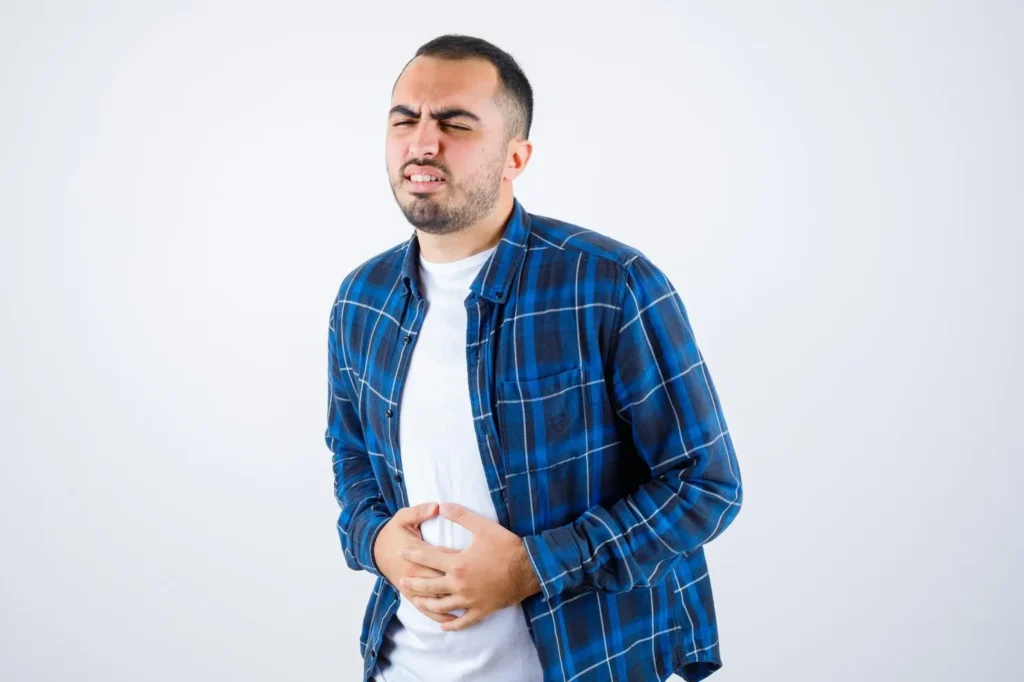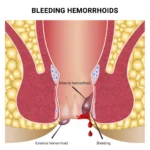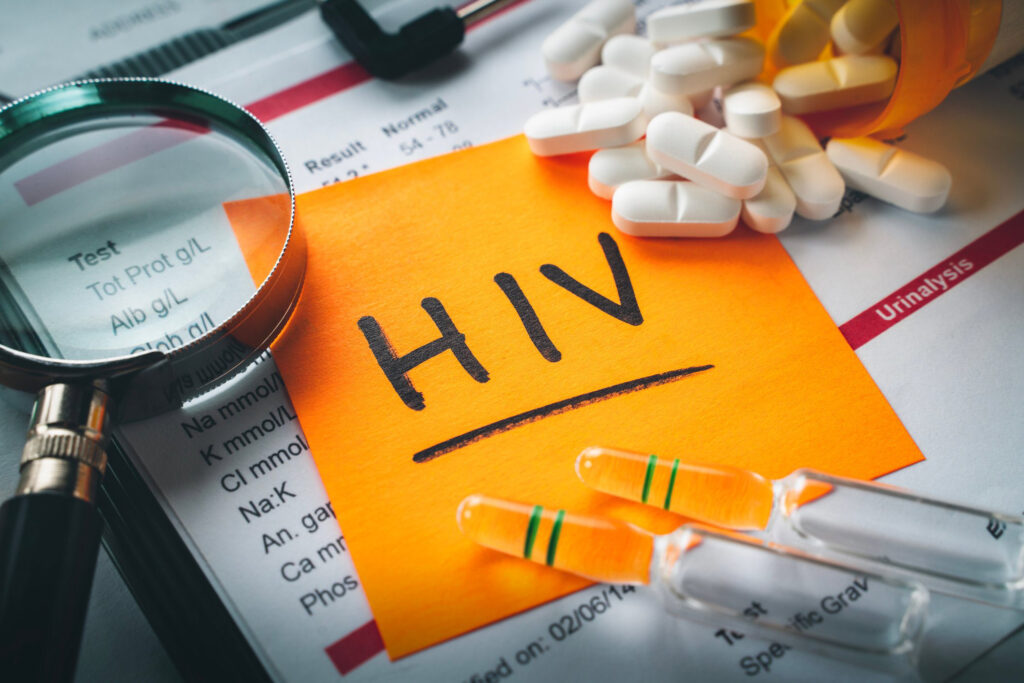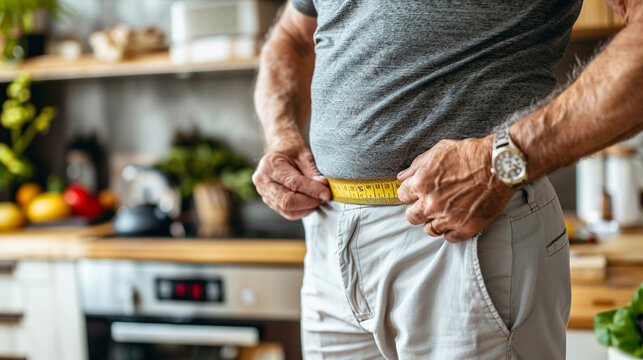When hard, dry stool gets stuck in the colon or rectum, it creates a serious condition called fecal impaction. This problem goes beyond regular constipation and can cause severe pain, bloating, and other uncomfortable symptoms. Fecal impaction occurs when hardened stool becomes so compacted that the body cannot pass it naturally, requiring medical treatment to remove the blockage.
The condition most commonly affects elderly people, especially those in nursing homes or hospitals. However, anyone who experiences chronic constipation faces an increased risk. People who take certain medications, have limited mobility, or suffer from specific health conditions may also develop this painful problem.
Understanding the warning signs and treatment options can help people get the care they need before complications develop. Healthcare providers at https://www.localmd.nyc/ and other medical facilities can diagnose and treat fecal impaction using various methods, from medications to manual removal procedures. Early recognition and proper treatment can prevent serious complications and help restore normal bowel function.
Understanding Fecal Impaction
Fecal impaction occurs when hard, dry stool becomes stuck in the colon or rectum and cannot pass naturally. This condition affects millions of people, particularly older adults and those with chronic health issues.
Definition and Overview
Fecal impaction is a serious medical condition where hardened stool masses become lodged in the large bowel. The impacted bowel cannot eliminate these masses through normal muscle contractions.
This condition develops when stool sits in the colon for extended periods. The colon absorbs water from the stool, making it increasingly hard and dry. Eventually, the stool becomes so solid that it cannot move through the digestive system.
Key characteristics of fecal impaction include:
- Hard, stone-like stool masses
- Complete or partial blockage of the bowel
- Inability to pass stool naturally
- Accumulation in the rectum or higher in the colon
The condition is known as fecal impaction in medical terms. Healthcare providers in gastroenterology frequently treat this problem. Without proper treatment, fecal impaction can lead to serious complications including bowel perforation.
How Fecal Impaction Differs from Constipation
While both conditions involve difficulty passing stool, fecal impaction is much more severe than regular constipation. Understanding these differences helps people recognize when to seek medical care.
Regular constipation typically involves:
- Fewer than three bowel movements per week
- Hard or lumpy stools
- Straining during bowel movements
- Feeling of incomplete evacuation
Fecal impaction involves:
- Complete inability to pass stool
- Rock-hard stool masses
- Severe abdominal pain
- Possible liquid stool leaking around the impaction
Chronic constipation can progress to fecal impaction if left untreated. The key difference is that constipation allows some stool passage, while impaction creates a complete or near-complete blockage.
People with impaction may experience paradoxical diarrhea. This occurs when liquid stool leaks around the hard, impacted mass.
Who Is Most at Risk
Certain groups face higher risks of developing fecal impaction. Age is the most significant risk factor, with elderly individuals experiencing this condition most frequently.
High-risk populations include:
- Adults over 65 years old
- Nursing home residents
- People with chronic constipation
- Individuals taking certain medications
- Those with limited mobility
Medical conditions that increase risk:
- Neurological disorders
- Chronic kidney disease
- Diabetes
- Hypothyroidism
- Mental health conditions
Women in institutional care settings face particularly high risks. Studies show that about 70% of elderly people in nursing homes experience severe constipation. Of these, approximately 7% develop fecal impaction.
Medications also contribute to risk. Opioid pain medications, certain antidepressants, and iron supplements can slow bowel movements. People taking these drugs should monitor their bowel habits closely.
Bedridden patients and those with reduced physical activity face increased risks. Regular movement helps stimulate normal bowel function.
Recognizing Fecal Impaction Symptoms
Fecal impaction creates a range of symptoms that can worsen over time if left untreated. Early recognition of these warning signs helps prevent serious complications and ensures timely medical care.
Most Common Symptoms
The inability to pass stool ranks as one of the most telling signs of fecal impaction. Patients often report days or weeks without a normal bowel movement despite feeling the urge to go.
Abdominal pain and cramping develop as the hard mass of stool stretches the colon walls. This discomfort typically worsens with time and may feel constant rather than coming in waves.
Bloating and abdominal distension occur when the impacted stool blocks the normal flow through the intestines. The belly may appear swollen or feel tight to the touch.
Paradoxical diarrhea confuses many patients and caregivers. Liquid stool leaks around the impacted mass, creating watery episodes in someone who hasn’t had a proper bowel movement in days.
Other symptoms include:
- Loss of appetite and nausea
- Back pain from pressure on surrounding structures
- Feeling of incomplete evacuation
- Rectal pressure or fullness
Progression and Complications
Fecal impaction symptoms typically worsen without treatment as the stool becomes harder and more difficult to remove. The initial discomfort progresses to severe pain that interferes with daily activities.
Fecal incontinence develops when liquid stool continuously leaks around the blockage. This overflow diarrhea creates hygiene challenges and emotional distress for patients.
Urinary problems emerge when the impacted stool presses against the bladder. Patients may experience difficulty urinating, frequent urination, or complete urinary retention.
Fecal loading becomes visible on physical examination as the abdomen distends further. Healthcare providers may feel the hard stool mass through the abdominal wall in thin patients.
Systemic symptoms appear as the condition progresses. These include fever, confusion, and general weakness, especially in elderly patients.
When Symptoms Signal a Medical Emergency
Severe abdominal pain that develops suddenly requires immediate medical attention. This may indicate perforation of the colon, a life-threatening complication.
Signs of perforation include:
- Sharp, intense abdominal pain
- Fever and chills
- Rapid heart rate
- Rigid abdomen
Vomiting, especially if it contains fecal matter, signals complete bowel obstruction. This emergency requires immediate hospital care to prevent serious complications.
Blood in the stool or rectal bleeding indicates damage to the intestinal walls. While small amounts may be common, significant bleeding needs prompt evaluation.
Patients who develop confusion, lethargy, or signs of dehydration need urgent medical care. These symptoms suggest the body is being overwhelmed by the impaction and its effects.
Root Causes and Risk Factors for Fecal Impaction
Fecal impaction occurs when hard, dry stool becomes stuck in the colon or rectum and cannot pass normally. The main causes include poor diet, lack of water, certain medications, and reduced movement, with elderly people and those with nerve problems facing the highest risk.
Lifestyle and Dietary Factors
Poor eating habits create the foundation for most cases of fecal impaction. A diet low in fiber prevents proper stool formation and makes waste harder to pass through the digestive system.
Key dietary problems include:
- Less than 25 grams of fiber daily
- High amounts of processed foods
- Too much red meat and dairy
- Limited fruits and vegetables
Not drinking enough water makes constipation worse. The colon absorbs more water from stool when a person is dehydrated, creating hard, dry waste that gets stuck.
Daily water needs:
- Adults: 8-10 glasses per day
- More during hot weather or exercise
- Extra fluids needed with high-fiber foods
Lack of physical activity slows down bowel movements. People who sit for long periods or stay in bed have weaker muscle contractions in their intestines. This makes it harder for stool to move through the colon normally.
Medical and Medication-Related Risks
Many common medications cause constipation that can lead to fecal impaction. These drugs slow down muscle movements in the intestines or reduce water in the stool.
High-risk medications:
- Opioid pain relievers (morphine, oxycodone, fentanyl)
- Antidepressants (tricyclics, SSRIs)
- Blood pressure drugs (calcium channel blockers)
- Iron supplements
- Antihistamines
Overuse of laxatives creates a dangerous cycle. The colon becomes dependent on these products and loses its ability to work normally. This leads to worse constipation when laxatives are stopped.
Surgery on the abdomen or pelvis often causes temporary constipation. Pain medications given after surgery make this problem worse. Patients may also avoid using the bathroom because of discomfort.
Medical procedures like barium studies can cause impaction if proper follow-up care is not given. The barium material hardens if it stays in the colon too long.
Age-Related and Neurological Considerations
Aging brings multiple changes that increase the risk of fecal impaction. Older adults have weaker muscle contractions in their intestines and often take multiple medications that affect bowel habits.
Age-related factors:
- Slower digestive system
- Reduced physical activity
- Multiple health conditions
- Limited access to bathrooms
About 70% of elderly people in nursing homes have severe constipation problems. Women over 65 face higher risks than men, especially those with mental health conditions.
Neurological disorders disrupt the normal signals between the brain and intestines. Conditions like stroke, Parkinson’s disease, and spinal cord injuries affect muscle control needed for normal bowel movements.
Neurological conditions that cause risk:
- Stroke
- Parkinson’s disease
- Multiple sclerosis
- Spinal cord injuries
- Dementia
People with these conditions often need help with bathroom visits. Caregivers may not recognize early signs of constipation, allowing problems to get worse.
Underlying Medical Conditions
Several medical conditions directly affect how the colon works and can cause fecal impaction. These problems change the normal structure or function of the digestive system.
Structural problems:
- Narrowed sections of the colon
- Blockages from tumors
- Severe hemorrhoids
- Anal fissures
Kidney disease affects the body’s fluid balance and can lead to constipation. Patients on dialysis have special dietary restrictions that may reduce fiber intake.
Diabetes damages nerves that control intestinal muscles. This condition, called diabetic gastroparesis, slows down food movement through the entire digestive system.
Hormonal disorders:
- Underactive thyroid (hypothyroidism)
- Low calcium levels
- Diabetes complications
Scleroderma hardens tissues throughout the body, including the intestinal walls. This makes it much harder for stool to pass through the colon normally.
Mental health conditions like depression can change bowel habits. Some people lose interest in eating or taking care of basic needs, leading to constipation and eventual impaction.
Diagnosis of Fecal Impaction
Doctors diagnose fecal impaction through a detailed medical history, physical examination, and imaging tests. A digital rectal examination is the most important first step, while x-rays and CT scans help confirm the diagnosis.
Clinical Evaluation and Medical History
The diagnosis process begins with a detailed review of the patient’s bowel habits and symptoms. Doctors ask about the frequency of bowel movements, stool consistency, and any recent changes in bathroom habits.
Patients often report being unable to pass stool for several days or weeks. They may also describe abdominal pain, bloating, or a feeling of incomplete evacuation.
Medical professionals review current medications, especially opioids and anti-inflammatory drugs that can cause constipation. They also check for underlying conditions like diabetes, kidney disease, or neurological disorders.
Key questions doctors ask include:
- When was your last normal bowel movement?
- Are you experiencing abdominal pain or cramping?
- What medications are you currently taking?
- Do you have any chronic health conditions?
Physical Examination
The physical exam focuses on the abdomen and rectum to detect signs of fecal impaction. Doctors look for abdominal distension, which appears as a swollen or enlarged belly area.
During abdominal examination, doctors gently press on different areas to feel for hard masses of stool. In thin patients, these masses may be easy to feel through the abdominal wall.
A digital rectal examination is essential for diagnosis. The doctor inserts a gloved, lubricated finger into the rectum to feel for hard, impacted stool. This examination can immediately confirm the presence of fecal impaction in the lower rectum.
The digital rectal exam also helps determine the size and consistency of the impacted stool. This information guides treatment decisions and helps doctors choose the best removal method.
Imaging and Diagnostic Tests
X-rays of the abdomen are commonly used to confirm fecal impaction and show its location. These images reveal areas of stool buildup and can show how much of the colon is affected.
Plain abdominal x-rays show fecal overloading as dark shadows in the intestines. They also reveal if the colon is stretched or distended from the impacted stool.
CT scans provide more detailed images when x-rays are unclear. These scans can show the exact location of impaction and rule out other serious conditions like bowel obstruction.
Sigmoidoscopy may be needed in some cases where other tests are inconclusive. This procedure uses a thin, flexible tube with a camera to look directly inside the lower colon and rectum.
Most patients don’t need extensive testing once a digital rectal examination confirms the diagnosis. Additional tests are mainly used when the impaction is located higher up in the colon.
Best Treatment Methods for Fecal Impaction
Doctors use several proven approaches to treat fecal impaction, starting with less invasive methods like oral laxatives and progressing to manual removal when necessary. Treatment success depends on the severity of the blockage and how quickly patients receive care.
Initial Medical Interventions
The first step in treating fecal impaction involves a thorough medical evaluation. Healthcare providers assess the patient’s symptoms, medical history, and current medications to determine the best approach.
Oral laxatives are typically the first treatment option. Doctors prescribe different types based on the patient’s needs:
- Bulk-forming laxatives add fiber to soften stools
- Stimulant laxatives increase muscle contractions in the colon
- Osmotic laxatives draw water into the intestines
Patients must increase their water intake when using laxatives. This helps prevent dehydration and makes the treatment more effective.
Medical professionals may also recommend dietary changes during treatment. Increasing fiber intake and avoiding constipating foods helps prevent future episodes.
Use of Laxatives, Suppositories, and Enemas
When oral laxatives fail to resolve the impaction, doctors move to more direct methods. Suppository medications are inserted into the rectum to soften the impacted mass from below.
Enema treatments are highly effective for fecal impaction. The procedure involves inserting liquid into the rectum through a small tube. Common enema solutions include:
| Enema Type | Purpose | Effectiveness |
|---|---|---|
| Saline | Softens stool | Moderate |
| Phosphate | Stimulates bowel movement | High |
| Mineral oil | Lubricates impacted stool | High |
The liquid softens and loosens the hardened stool. Patients typically experience relief within 30 minutes to several hours.
Healthcare providers often combine different approaches for better results. For example, they might use a suppository followed by an enema.
Manual and Surgical Procedures
Manual disimpaction becomes necessary when other treatments fail. This procedure involves a healthcare provider using gloved fingers to break up and remove the impacted stool.
The process requires proper technique to avoid injury. Medical professionals use lubricant and work carefully to remove the stool in small pieces.
Disimpaction procedures may require sedation for patient comfort. The healthcare provider continues until they remove enough stool to restore normal bowel function.
Surgery is rarely needed but may be necessary for severe cases. Surgical options include removing damaged sections of the colon or creating temporary openings for waste removal.
Patients in the Maspeth, Queens and Brooklyn, NY areas can contact specialized gastroenterology services at (718) 841-0874 for Maspeth or (718) 550-8091 for Brooklyn locations for comprehensive fecal impaction treatment.
Prevention and Long-Term Management
The best way to prevent fecal impaction is to stop constipation before it becomes severe. This involves making changes to diet, staying active, and working with doctors to monitor bowel health.
Diet and Lifestyle Adjustments
Getting enough fiber is key to preventing fecal impaction. Adults should eat 25-30 grams of fiber each day. Good sources include fruits, vegetables, whole grains, and beans.
High-Fiber Foods:
- Apples with skin (4 grams per medium apple)
- Broccoli (5 grams per cup)
- Whole wheat bread (3 grams per slice)
- Black beans (15 grams per cup)
Adding fiber slowly helps prevent bloating and gas. People should increase fiber by 5 grams each week until they reach the daily goal.
Drinking enough water helps fiber work better. Most adults need 8 glasses of water daily. Water keeps stool soft and easier to pass.
Regular exercise also helps prevent constipation. Walking for 30 minutes most days can improve bowel function. Physical activity helps move stool through the intestines.
Safe Use of Medications
Many medications can cause constipation. People should talk to their doctor about all medicines they take. Some common ones that cause problems include pain medicines, antidepressants, and iron supplements.
Medications That May Cause Constipation:
- Pain relievers (opioids)
- Antacids with aluminum
- Blood pressure medicines
- Antihistamines
Doctors may change doses or switch to different medicines when possible. They might also prescribe stool softeners or laxatives for people who must stay on constipating drugs.
Laxatives should only be used as directed by a doctor. Using them too often can make constipation worse over time. The safest types are bulk-forming laxatives like psyllium.
Monitoring and Follow-Up
People at high risk need regular check-ups with their doctor. This includes elderly adults, those with chronic illnesses, and people taking multiple medications.
Doctors aim for patients to have bowel movements every 1-2 days. Keeping a diary of bowel habits can help track patterns and problems.
Warning Signs to Report:
- No bowel movement for 3+ days
- Hard, dry stools
- Straining or pain
- Stomach pain or bloating
Early treatment of constipation prevents fecal impaction. People should not wait until symptoms become severe. Quick action with fiber, fluids, and gentle laxatives works better than waiting.
Regular medical visits help catch problems early. Doctors can adjust treatment plans and check for underlying health issues that might cause constipation.
Frequently Asked Questions
People with fecal impaction often ask about symptoms like severe abdominal pain and bloating, causes including chronic constipation, treatment options such as enemas and medications, and how to know when the condition has cleared.
What are the common symptoms indicating a fecal impaction?
Symptoms include severe abdominal pain, bloating, inability to pass stool, nausea, and difficulty eating.
What factors typically cause fecal impaction?
Chronic constipation, dehydration, lack of fiber in diet, limited physical activity, and certain medications are the main causes.
What are the differences between fecal impaction and standard constipation?
Fecal impaction involves hard stool masses stuck in the colon that cannot pass naturally, while regular constipation involves infrequent bowel movements that can still occur.
What non-surgical treatment methods are most effective for fecal impaction?
Enemas, oral laxatives, stool softeners, and manual removal by a healthcare provider are the most common non-surgical treatments.
How can you tell when a fecal impaction has been successfully treated?
Success is indicated by the ability to pass stool normally, reduced abdominal pain, and decreased bloating.
Are there fast-acting remedies for severe bowel impaction?
Phosphate enemas and manual disimpaction by medical professionals provide the fastest relief for severe cases.






